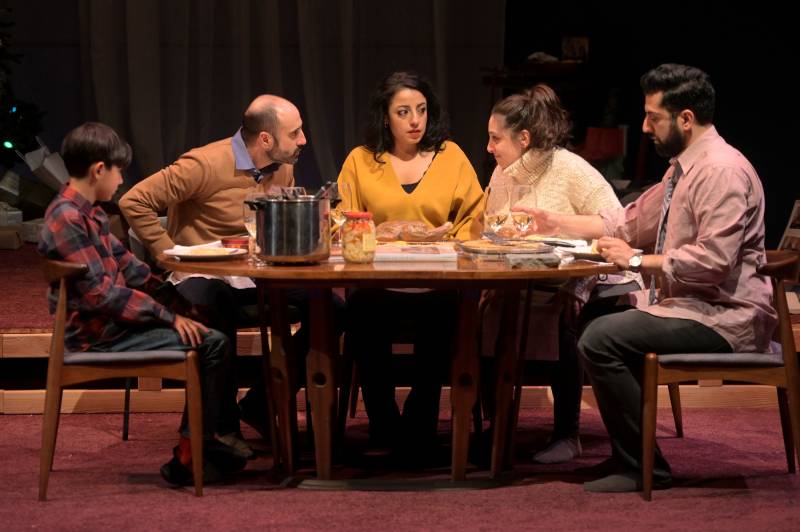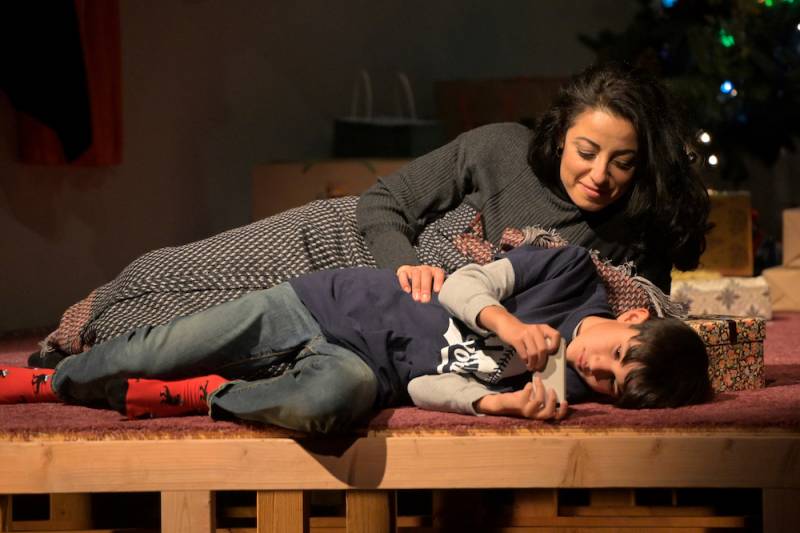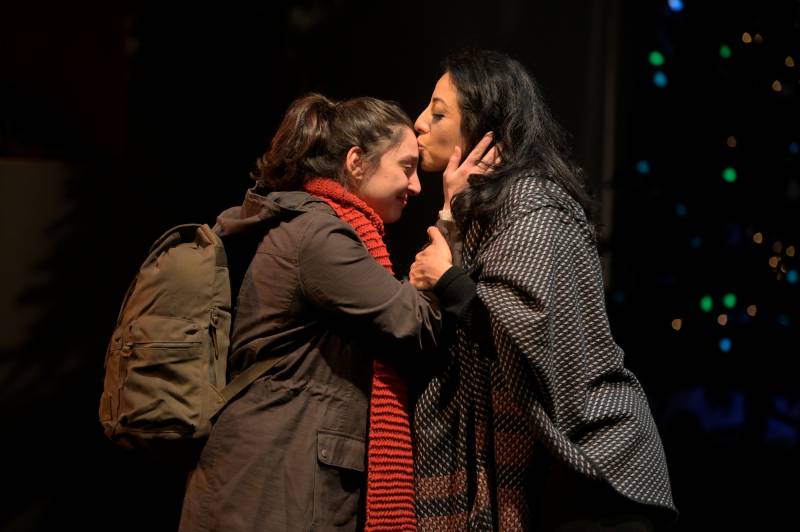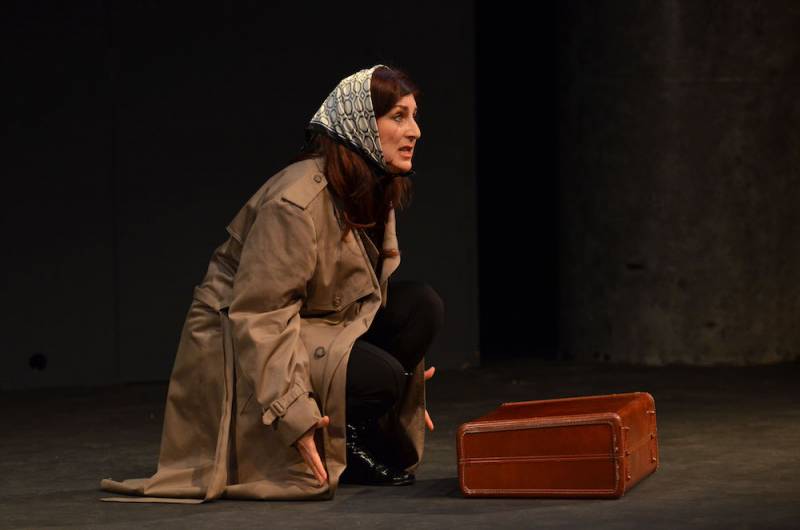Barely before this month’s New Year’s revelry had quieted, news of the extrajudicial killing of Iran’s Qasem Soleimani by U.S. airstrike dominated the news cycle, and the Middle East was thrust one more into unwelcome focus. And even though the immediate crisis of escalation and threat of war seems to have been brought under some control, there’s no doubt that the reverberations of that action will resonate for years to come: in Iran, Iraq, and worldwide.
It’s reverberations such as these that two plays opening this month in the Bay Area are already intricately familiar with. Both Noura, by Heather Raffo, at Marin Theatre Company, and Mimi’s Suitcase, by Ana Bayat, at NOH Space, deal explicitly with the long-term effects of immigration on ordinary citizens from the Middle East. Beyond describing reasons to leave, both Noura and Mimi’s Suitcase delve into what it means to survive the process of re-routing, and re-rooting, as immigrants, women, and artists.

Noura, which opened in previews on Jan. 9, explores the Iraqi-American experience through a quotidian, domestic lens. With a hat-tip to Ibsen’s A Doll’s House, the play takes place over the Christmas holiday, revolving around an Iraqi refugee family who has just received American citizenship after eight years of waiting. Members of a displaced Christian minority, they’ve settled in New York (where playwright Heather Raffo also lives). As the play progresses, as do the complexities of their relationship to each other, to their selves, and to their adopted home.
Having performed the role of Noura in the play’s world premiere in 2018, Raffo’s understanding of the character extends beyond the lived experience of growing up with an Iraqi parent. By birthing the role as well as the play, she’s in a unique position of being able to explore Noura’s philosophical layers with a keen familiarity. Through the character, she’s been able to wrestle with her own struggles with the “rugged individualism…of Western American feminism,” and speak to a yearning to use female liberation as a platform for more than self-actualization. Her Noura, an architect, not only juggles the imperative to create with the demands of the domestic, but also the eternal inner conflict of reconciling with a turbulent, dangerous past.

“I really wanted to reframe the play (A Doll’s House) in what does it mean to be actually very attached?” she explains over the phone. “The question I’m facing in my life isn’t ‘I will just up and leave my family so I can live my life as a full human being’….I can’t do that…most of us wouldn’t want to do that. In this play they are all Nora Helmer, all post-door slam, all living together, going these are the different ways they’ve chosen to move on, and now what?”




